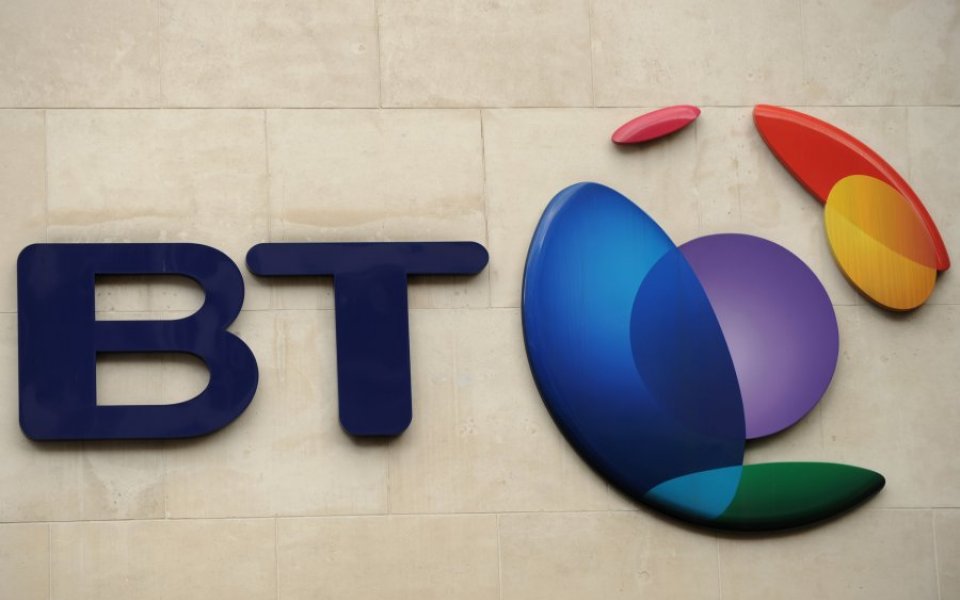BT’s share price rises as it reveals new structure after EE acquisition – and the mobile brand is staying (for consumers at least) – as revenues reach seven-year high

BT has unveiled sweeping changes to its structure, following the completion of its £12.5bn takeover of EE last week, as the business reports its best revenues in more than seven years.
Although some had predicted the demise of the EE brand, the mobile firm will continue in its current form as far as "the consumer market retaining its brand, its network and its hundreds of high street stores" are concerned.
Under chief executive Marc Allera, it will manage advanced mobile services, broadband and TV. It will also continue to deliver the Emergency Services Network contract which was awarded to EE late last year.
BT Consumer will sit alongside it as the largest ISP in the UK, serving 10 million households with a mix of superfast broadband, telephony, TV and mobile services. John Petter will continue in his role as chief executive.
Read more: BT's EE deal paves the way for better services industry-wide
BT has then hived off a new business and public sector division, with around £5bn of revenues. It will be made up of the existing BT Business along with EE's business division and those parts of BT Global Services that are UK focused. BT Business boss Graham Sutherland will head the new arm up.
Global Services will then be refocused specifically around multinational companies and financial services organisations headquartered in the UK and across the world. It will also focus on serving major public and private sector customers outside the UK. Luis Alvarez will continue as its chief executive.
EE's MVNO business will be rolled into BT's wholesale and ventures arm, along with other specialist businesses such as fleet, payphones and directories. Gerry McQuade, currently chief sales and marketing officer of business at EE, will be its chief executive.
[charts-share-price id="52"]
BT Openreach – which is still awaiting a decision from Ofcom – will remain distinct from the rest of the business. Clive Selley takes over as its chief executive today. A report published last fortnight called for the division to be sold off.
Group chief executive Gavin Patterson said: "The acquisition provides us with a chance to refresh our structure and we have done that by creating a major new division that will focus on businesses and the public sector in the UK and Ireland.
"We want to support those sectors by offering customers the very best services whether that be dedicated private lines, network products such as fibre broadband, mobile solutions, IT services or cyber expertise to keep them safe.
"We will continue to offer many of these services to multinational companies and major overseas customers via our Global Services division. It is an important part of the company and this new structure will enable it to sharpen its focus on its key areas of strength".
The six divisions will be supported by Technology, Service and Operations which is currently responsible for BT's 'core' networks in the UK and overseas, its IT platforms and its global research and development arm. Howard Watson takes over as its chief executive today, replacing Selley.
A new IT and Mobile business unit within TSO will be led by EE's Fotis Karonis. Fotis will join Howard's leadership team as well as support Marc Allera as EE's chief information officer.
The changes come as BT Group reveals a three per cent rise in revenues to £4.59bn for the third quarter to 31 December, while adjusted profit before tax soared 14 per cent to £928m. Reported profit before tax climbed an even more impressive 24 per cent to £862m, with earnings per share up 13 per cent and 38 per cent respectively.
EBITDA rose three per cent to £1.6bn.
Patterson said: "This is a strong set of results with good numbers across the board. Revenue was up 4.7 per cent this quarter, our best result for more than seven years. We are making good progress towards our goal of sustainable profitable revenue growth… These are exciting times at BT."
BT's share price was up 2.3 per cent in early trading.